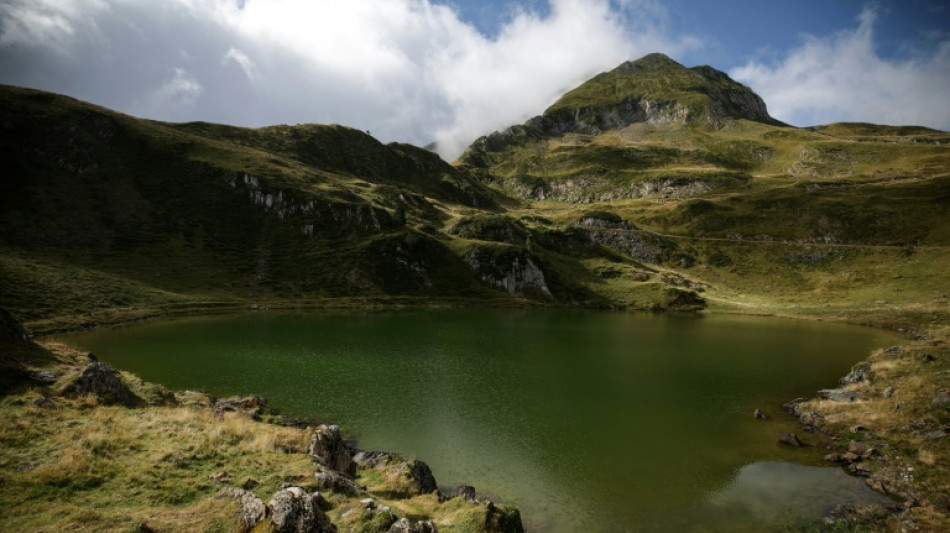Minnows blamed for algae-filled French, Spanish lakes / Photo: Valentine CHAPUIS - AFP
Perched 1,800 metres (about 6,000 feet) near France's border with Spain lies the emerald Areau lake -- whose colour experts blame on minnows used by anglers as live bait.
"When one sees these fish in the mountain lakes, we see a disturbed ecosystem," said Adeline Loyau, a biologist and researcher at the National Polytechnic Institute (INP) in the southern French city of Toulouse.
These tiny fish, less than 10 centimetres long, are used as live bait.
But some managed to escape the hooks and have thrived, devouring amphibians, insects and zooplankton -- "microscopic crustaceans whose role is to devour algae and keep the water crystal clear and very pure", Loyau told AFP.
When the lake became green "it meant the algae won", said Dirk Schmeller, a professor specialising in mountain ecology at the INP.
But the abundance of algae in the once clear waters is not only due to this, and several other issues are being examined.
- 'Cocktail of factors' -
"There are a cocktail of factors," said Didier Galop, head of research at the National Scientific Research Centre (CNRS) who specialises in the history and geography of the environment.
The growing concentration of herds of cattle around these lakes means an increase of manure spewing nutrients into the water and make it a breeding ground for algae.
Others say higher temperatures due to global warming is exacerbating the problem.
But some say the greening of the lakes is not necessarily alarming.
"There are also lakes that are very blue but have zero biodiversity," Galop said.
Schmeller and Loyau however said green lakes were becoming more and more common in the region.
"We even have hikers who sometimes come 30 years later" and notice this, Loyau said.
- Diverse laws -
On the other side of the Pyrenees in Spain, green lakes have been observed since 2011 by Spanish researchers and a programme was launched three years later to get rid of the minnows with nets and electrical techniques.
In 2018, France's National Pyrenees Park copied the Spanish initiative but they found that the fish had been reintroduced by anglers.
Some highlight the need to educate fishermen.
Sebastien Delmas, the head of an association grouping anglers' groups from the French Pyrenees, said local laws needed to be harmonised to outlaw live bait.
But he emphasised that other species like trout had their place in the lakes.
"The fish, they too are biodiversity. If they have been here for centuries, it's because they fit in," he said.
Delmas said tourism was also partly to blame, saying swimmers smeared with sunblock and mosquito repellents were also affecting the ecosystem.
"On a summer's day, there may be three or four anglers around a lake but 300 swimmers. But one always blames the anglers," he said.
Schmeller said there was a real need to eliminate pollutants around lakes, adding sardonically: "After that, there's just climate change that needs to be tackled".
A.Krishnamurthy--BD
